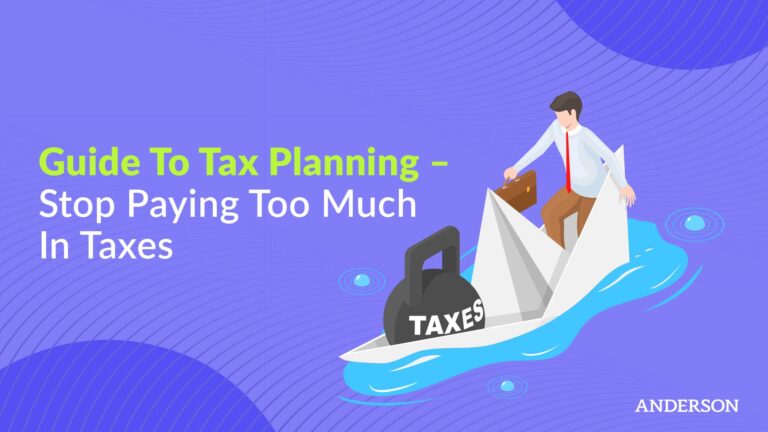Updated October 1, 2021
Equity investment is a type of crowdfunding mechanism in real estate. Investors become shareholders in a particular property (or properties), and the size of their stake in ownership is proportionate to the amount they’ve invested. Like any other type of investment mechanism, real estate equity investing has its pros and cons.
Pros and Cons of Real Estate Equity Investing
Pros:
- No Caps on Investment Returns
- Smaller Fees
- Tax Deductions
- Higher Cash Flow
Cons:
- Higher Risk
- Longer Holding Periods
- Less Control Over the Deal Structure
It’s important to consider these benefits and liabilities when considering participation in a real estate equity investment opportunity. Venture capitalists are always looking for new types of investment opportunities and purchasing a portion of shareholder equity in a real estate project or portfolio can be a lucrative alternative to growing money through mutual funds, individual stocks, or even preferred stock that pays dividends.
Most often this equity investing will be done by contributing towards a structured equity fund, which will adhere to a set of rules and regulations set forth primarily by the General Partner or Sponsor (the lead investor).
What is a Real Estate Equity Investment?
Real estate equity investment involves a partnership structure headed by a General Partner (GP) and comprised of Limited Partners (LPs) who act as passive investors. These Limited Partners purchase fractional shares of a special purpose vehicle (which might be referred to as an equity fund or a named business), which in turn grants them a fractional ownership interest in a real estate portfolio which may be comprised of one property or multiple properties.
Equity distributions are paid from the Net Operating Income—that is, cash flow generated by property tenants, after operating expenses and extant debts. It’s important for Limited Partners to understand that the payment for a real estate equity investment, often called a Waterfall or Promote Structure, are contractual arrangements that dictate how the cash will flow once investors have received their due returns (namely, their principal investment and the corresponding percentage of the net operating income).
Real estate equity investment differs from debt investments. A debt investment involves the investors acting as lenders who now share in the property and are limited to a fixed rate of return. However, their loan is often secured by the property itself.
It’s important to realize that real estate projects can be short term or long term investments. A short term project might involve constructing a building or development and then selling it off. A long term investment might involve building up a portfolio of rental properties. With short term projects, equity investors will most likely not see a return on investment (ROI) until the deal is closed. With long term projects, equity investors might have to wait until returns begin to accrue—though once the proverbial ball gets rolling on such a property, they will certainly benefit from the ongoing cash flow it produces.
Pros and Cons of Real Estate Equity Investing
PRO: No Caps on Investment Returns
The ROI for investors in an equity investment is based on the percentage of their contribution to the Capital Stack (the total dollar amount invested in the project). That said, if a project makes more money than expected, investors will reap the rewards. It’s not unheard of for Limited Partners in a real estate equity investing structure to see returns of 25% or more. On top of that, equity investment is a long-term proposition, unlike a debt, which is a one-time exchange. This means that if the equity fund is financing the construction of multi-family residential real estate or commercial real estate, investors stand to generate continuous cash flow as long as the building is profitable with paying tenants.
PRO: Smaller Fees
A popular mechanism for multiple investors to obtain a share in a property is called a Real Estate Investment Trust (REIT). However, shareholders of a REIT may have to pay service fees. In fact, the sales commissions and upfront servicing fees of some REITs may run as high as 10%. By contrast, fees for real estate equity investors often run at an annual 1-2% of their total invested amount. Of course, it’s important to carefully examine the schedule of fees and other pertinent information presented by an equity fund to see exactly what the costs will be.
PRO: Tax Deductions
Equity-based crowdfunding deals are normally structured as an LLC. A limited liability company is a pass-through entity in terms of taxation, meaning that investors can claim deductions for depreciation of the property and the cost of its upkeep, even though they don’t own the property wholly and directly. At the same time, it’s important to note that if the equity financing is geared toward a project that will be sold for profit, the capital gains tax will reduce the overall ROI for each individual investor.
PRO: Higher Cash Flow
REITs are much like stocks: The board of directors can determine how much money shareholders will get because their shares do not correspond to a directly proportional amount of the Net Operating Income. By contrast, equity investments pay investors a share of the profits until the return is achieved. This threshold, called pari passu, includes the return of the original investment plus an additional percentage of return. Once pari passu has been met, a contractual waterfall or payment schedule may kick in—but only after investors have been paid. This means that an equity investor is not locked into the returns of an set interest rate or a dividend yield set by the board of directors. The money he or she earns is equivalent to the amount they put into the fund.
CON: Higher Risk
As mentioned, when investors contribute to a project in the form of debt investment, the property itself serves as collateral. By contrast, equity investors have no collateral. Moreover, projects can also be crowdfunded with a mix of equity and debt investment. In those cases, lenders have more protection than equity investors. Senior debt holders are also entitled to be paid back their principal and interest in a real estate investment before equity investors receive payouts. In the case of a loss, equity investors stand to lose their investment with no means of recouping it.
CON: Longer Holding Periods
It may be some time before a real estate project generates enough income to cover its initial debts and operating expenses. Equity investors may need to wait as many as five to ten years before seeing returns on their equity investment. By contrast, debt investment usually operates along much shorter timeframes. However, some real estate equity investments are short term projects, such as the construction of a building to be sold or a development to be parceled off. In these cases, the investors will see their ROI upon liquidity (that is, the sale).
CON: Less Control Over the Deal Structure
Debt investors can exert more control over the structure of a deal, such as determining the time frame for repayment and the interest rate—not to mention the fact that they can collect the collateral of the property if the debt goes unpaid. By contrast, equity investors are called Limited Partners for a reason; they are mostly limited to accepting the deal as it is offered to them, with virtually no control over how long it will take to see a return on investment, though those returns are indefinite and uncapped.
How to Find Real Estate Equity Investment Opportunities
If you’re interested in the possibility of participating in a real estate equity investment, your first move should be building up a network of real estate professionals. Joining a Real Estate Investors Association is a great place to network with potential Sponsors (another name for General Partners) who may be looking to raise some capital for an upcoming project by selling off shares of their investment.
Another way to find venture capital opportunities for real estate investing is to look for private equity funds offered by private equity firms. Investing in these portfolio companies is not like purchasing assets available on a publicly traded market. Rather, these types of equity funds are more like equity mutual funds managed by a financial advisor. However, in this case, the advisor and decision-maker in charge of the fund is the lead investor or General Partner in a real estate venture. Such equity firms that focus on raising equity capital can provide an easy path to diversification for a retail investor interested in real estate but unable to invest on their own or take time away from their own work.
With the advent of the internet and app culture, it’s become easier than ever to invest in the growth equity opportunities made available by equity funds that are available to the general public—with real estate projects yielding opportunities both in terms of American equity and international equity. Investors just need to remember that these types of equity investments are less regulated.
How to Attract Private Equity Investment
If you’re a real estate developer, equity investment can be a great way to raise funds for a project. In some situations, you will indefinitely sell off shares of interest in your property, but you will avoid jeopardizing your own investment in the asset—because equity investors cannot position your property as collateral in the agreement.
It can be difficult to find a few angel investors who provide you with the funds you need to complete a project—so setting up an equity fund might just be the best investment avenue toward getting your real estate project completed. Since 2015, this has been even easier, since the US Securities and Exchange Commission (SEC) ruled that both accredited and non-accredited investors can participate in equity funds.
Real estate developers and investors would also benefit from building up a network of like-minded real estate professionals such as lenders, real estate agents, and other investors. One of the easiest ways to do this is to join their local Real Estate Investors Association, where they can easily build such a network and find investment advice.
What Is an Equity Investment in Real Estate?
Most investors in real estate lack the funds or the experience to enter into larger projects, such as those in commercial real estate investing. Crowdfunding can be an attractive option for participating in such larger ventures, especially when the ROI is uncapped and can possibly produce a long term cash flow.
Equity investment in real estate gives these investors the opportunity to enter a venture as limited partners. They can put their money to work without having to involve themselves in running the project. Though their investment isn’t guaranteed with a lien on the property in question, they can see excellent returns with tax benefits and smaller fees.
For active and experienced investors, equity investing is still an attractive type of asset. It provides them with the opportunity to build a passive income stream, without having to forfeit a large amount of capital upfront or break off their involvement from current projects of their own.
Bonus Video
Free Strategy Session with an Anderson Advisor
Receive a detailed risk assessment to assist in lowering problem areas that could wipe out all of your assets with one wrong move. Speak with an Anderson Professional Advisor to get your FREE Strategy Session.
Limited-Time Offer: ($750 value.)











